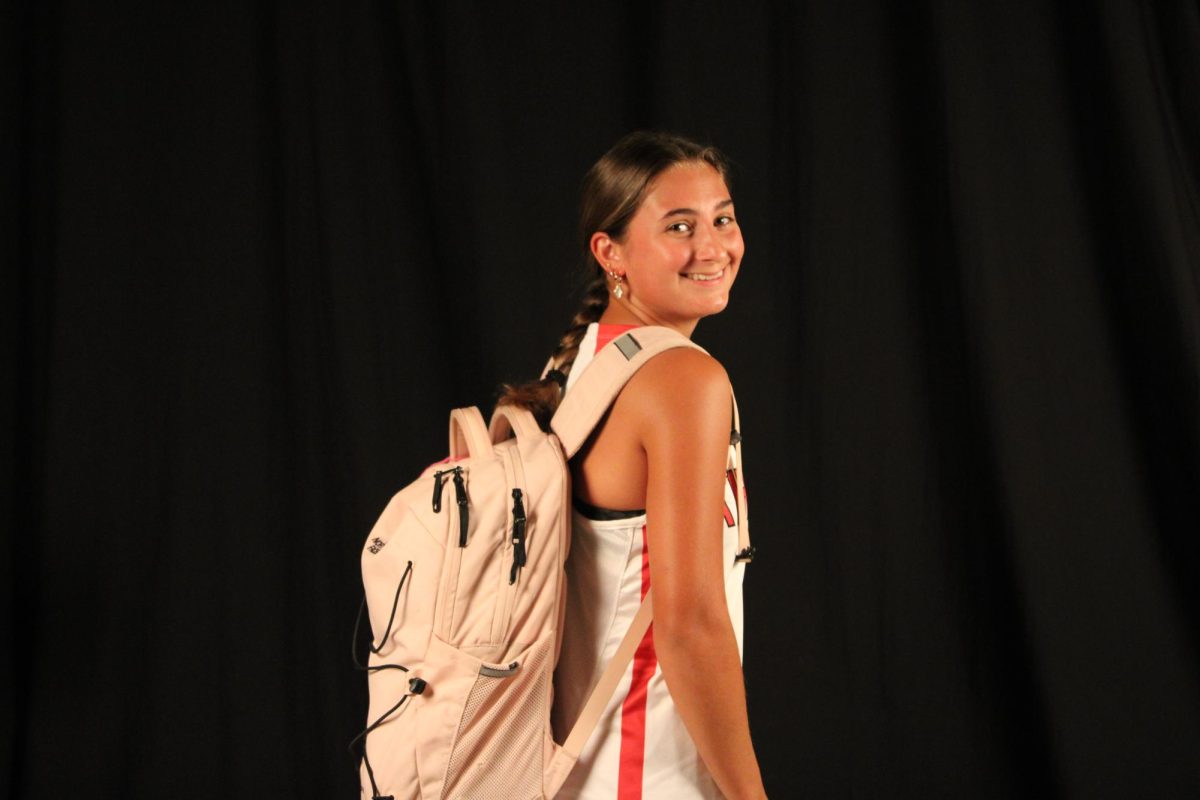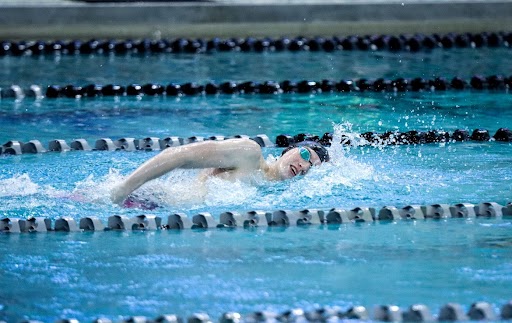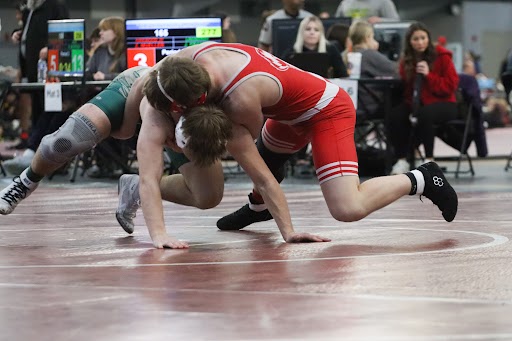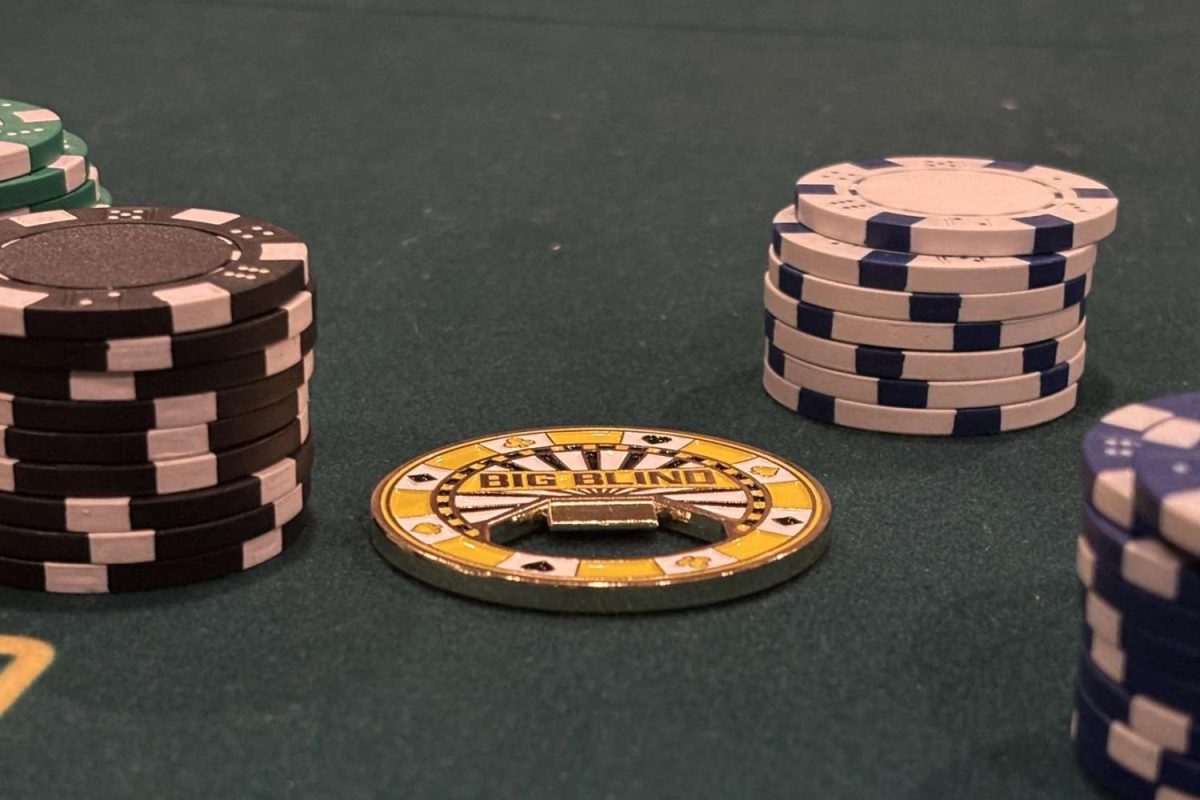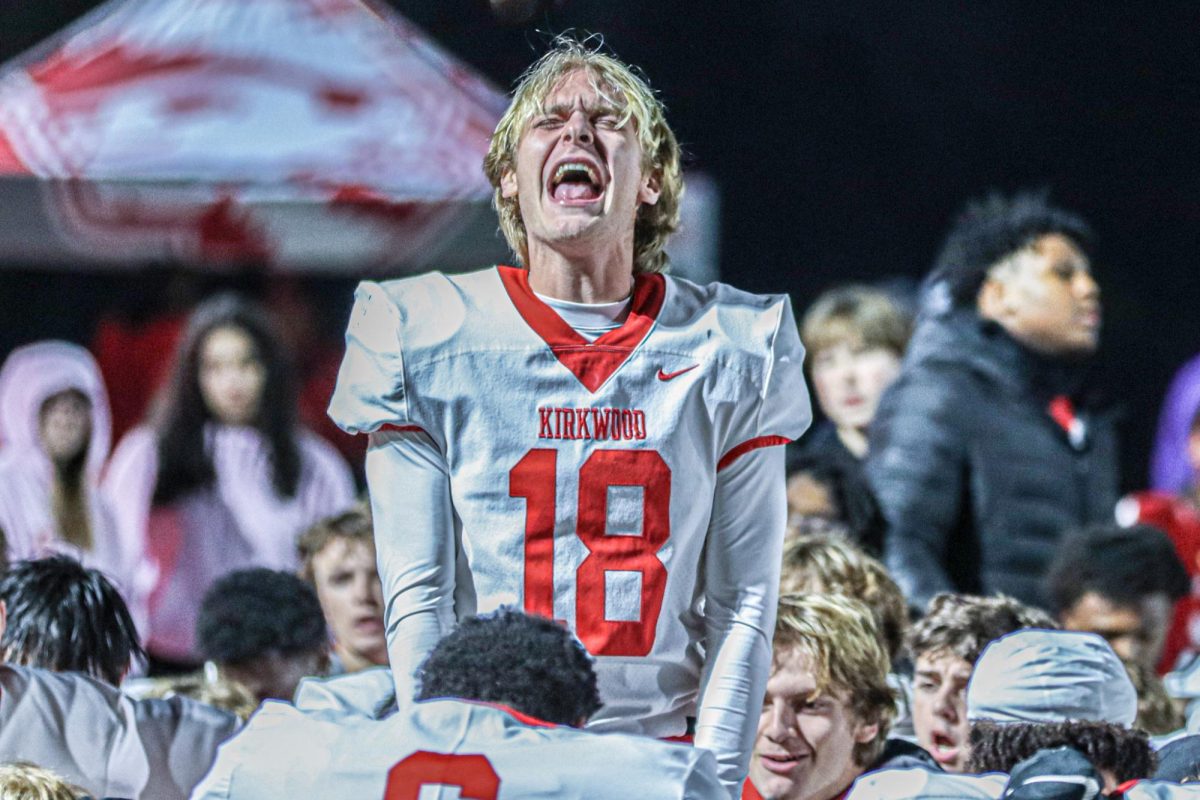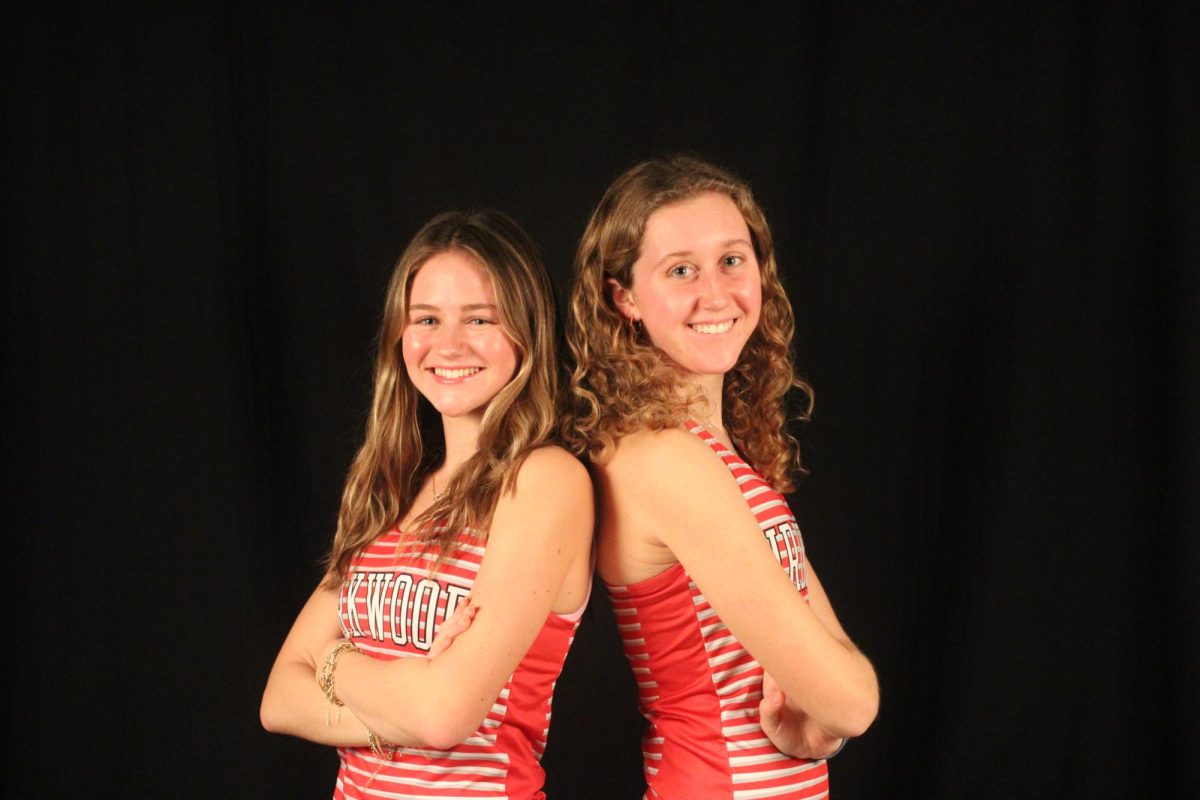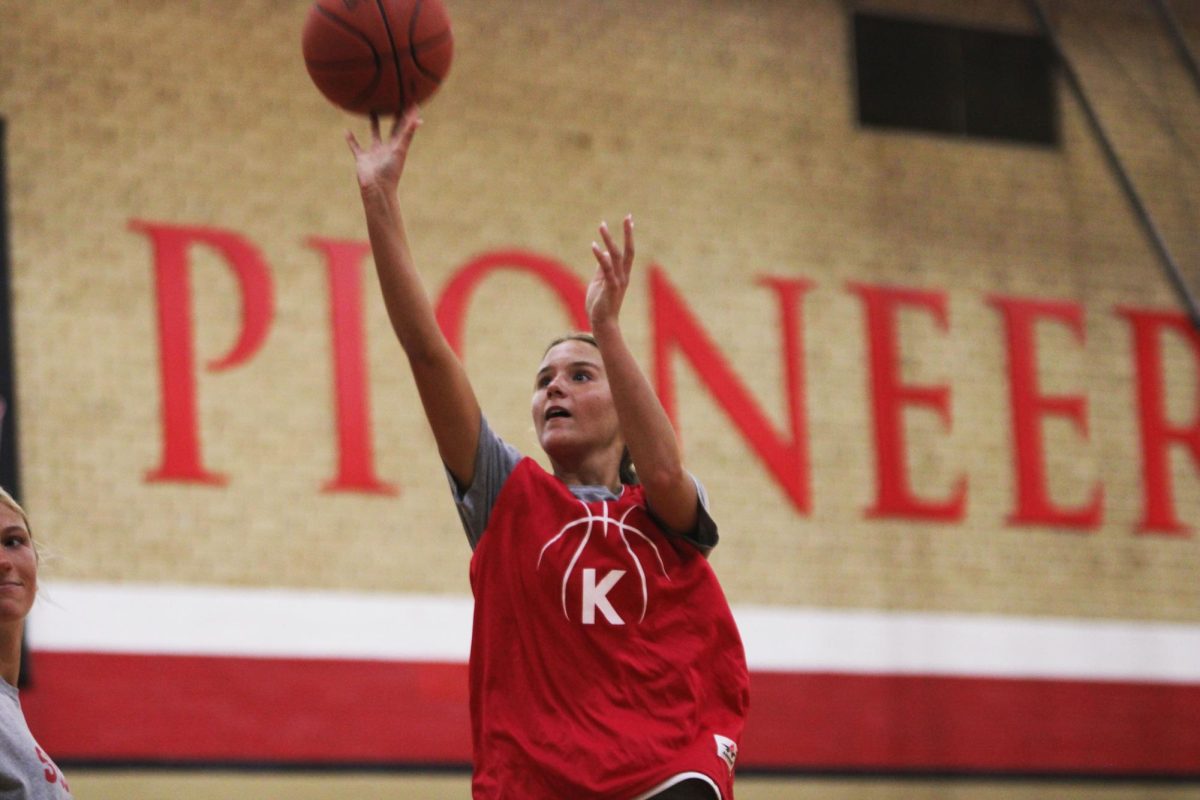She watches as boatloads of schoolwork begin building piles and putting pressure on students more and more every week. The school day may be over but there is no time to rest, as the fall athletics season is only just beginning. She hastily puts on her bright white jersey, determined to uphold the school legacy as well as her own. Alongside her team, she heads out to a space that she has always called home, the practice field.
Whether it’s soccer, field hockey or basketball, Emma Appel, senior, is always on the move. She explained she has grown up playing sports for as long as she could remember so the constant training has become a routine.
“I have always been in multiple [sports],” Appel said. “I’ve never been used to just playing one sport ever, so it’s always go go go.”
For others, finding the sports to schoolwork balance can prove to be a challenging task, but not for Appel. Navigating busy schedules is a daily job and Appel describes how she has found strategies to make sure all of her work is completed.
“I do a lot of online classes which helps because [the] workload is just on your computer and you can do it a lot easier,” Appel said. “I also make sure I take the time, whether it’s in between or right before practices, to try and get something done even if it’s just a little bit.”
Staying on top of work is crucial for Appel. During the short intervals in which she has time for schoolwork, Appel said she has learned how to prioritize some assignments and set aside others to finish what is due the next day.
“I go home for an hour because I have an off campus… I come back [to school] and I have field hockey practice and then usually right after field hockey, I’m going straight out to the soccer field,” Appel said. “I’m getting home probably about 10:30-11 each night, so I’ll try to do some homework if I have time. ”
One of Appel’s teammates during the past basketball season, Maggie Gunn, junior, noticed that Appel would often have a very large workload. Gunn said this added to her already busy schedule.
“[Appel] is the kind of person that likes to be moving all the time and needs to, so she was super busy and she at times was very stressed,” Gunn said. “I think that was just part of the environment that she was used to and so it wasn’t like it was anything out of her control.”
Gunn talked about how that stress can go along with taking high school classes, playing three sports, having commitments outside of sports and trying to maintain friendships. All things she said can be very time consuming.
“She had a lot on her plate and that could be overwhelming at times,” said Gunn. “But she handled it with grace and was really committed to all her sports and her school work.”
Gunn recognized Appel’s commitment to keeping up with her work and how that is key to succeeding in sports. Gunn describes how she considers this crucial skill of time management to be superhuman.
“I think [managing time as a tri-sport athlete] totally could be considered a superpower because you have to be so good at it,” Gunn said. “Beyond the high school academic and sports world that is so essential for everyday life. Establishing that kind of ability within yourself to figure out what you need to do when and schedule your day like that is totally a superpower.”
Coach and teacher Jordan Sabotic, girls varsity soccer coach, was a multisport athlete herself in high school. She recognizes the struggle that athletes may go through and tries to be understanding during the soccer season.
“I feel like I’m pretty understanding…I [understand] that [burnout] going from a school practice to a club practice and trying to find that time in between to do homework,” Sabotic said. “I do know that there’s some overwhelming features to it where I’ve had girls say to me they feel stressed and just feel like they don’t have any time.”
Sabotic believes that playing multiple sports can even help combat burnout. She advises any student athletes that may be considering playing multiple sports to go for it.
“Do it, definitely do it. Different coaches train players [in] different ways, different coaches provide different sparks for players,” said Sabotic. “If you’re playing multiple sports it gives you a break from what maybe is your main sport… Just to go do a different thing and still be competitive but know that that’s not their best sport and that’s okay.”


